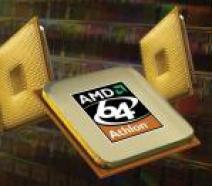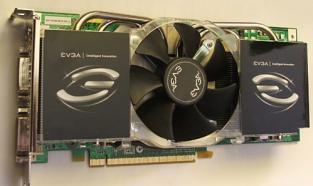OOPS! You forgot to upload swfobject.js ! You must upload this file for your form to work.
Intel expands the range of services for semiconductors contract registration
![]()
|
xtreview is your : Video card - cpu - memory - Hard drive - power supply unit source |
|
|||
|
|
||||
 Recommended : Free unlimited image hosting with image editor
Recommended : Free unlimited image hosting with image editor
|
POSTER: computer news || INTEL EXPANDS THE RANGE OF SERVICES FOR SEMICONDUCTORS CONTRACT REGISTRATION |
DATE:2014-08-30 |
|
|
Intel has continued to systematically solve problems with the organization of their factories contract manufacturing. For her, it is an extremely important issue. This year, for example, to produce their own solution using 14-nm process, decided the Japanese company Panasonic. Fresh press release, Intel announces the completion of the list of services Custom Foundry division two innovations. As you may know, it is now fashionable to talk about the issue 2.5D--and 3D-chip layouts using sufficiently thin metallic compounds through TSVs. The other day, for example, Samsung has reported the launch of 4-Gbit chips DDR4, taken with TSVs-compounds. Contrary to this progressive trend of Intel company , interestingly, categorically rejects the use of TSVs. The company has said it in March , when introduced to customers on a contract packaging type SiP, and talking about it now. According to the manufacturer, the outer wire harness crystals themselves do not become obsolete, and makes it possible to save on production. New service Intel Custom Foundry - an opportunity to pack a few inexpensive heterogeneous crystals in one package with an inexpensive bridge as a substrate. The crystals thus be linked to the bridge with the help of wires. The service is called Embedded Multi-die Interconnect Bridge (EMIB) and is an alternative to TSVs-generation compounds 2.5D. It will happen just because the external wire harness lengthen the signal path and cause losses in the conductors. But cheaper, because they do not need to change equipment. Obviously, the company hopes to make up for deficiencies EMIB more advanced 14-nm process technology. The second service is a fresh Intel's customers for contract semiconductors - is to provide customers with proprietary hardware and software platform High Density Modular Test (HDMT) for verification descended from the conveyor crystals. This is a personal Intel tool , which it used for its own needs, but from now on, this tool will be available to all customers. With regard to technology EMIB, then the first delivery assemblies experienced company will begin to ship to customers in 2015. | ||
|
|
||
|
xtreview is your : Video card - cpu - memory - Hard drive - power supply unit source |
|
|
|
|
||
|
Xtreview Support  N-Post:xxxx Xtreview Support        |
INTEL EXPANDS THE RANGE OF SERVICES FOR SEMICONDUCTORS CONTRACT REGISTRATION |
| Please Feel Free to write any Comment; Thanks  |
ARM expands staff and improves the incentive system (2017-08-08)
Google expands the staff of experts in the development of mobile processors (2017-06-15)
Intel expands its cooperation with Spreadtrum (2017-04-20)
GlobalFoundries expands production of chips in the United States, China, Germany and Singapore (2017-02-12)
Osram expands production IR-scanners for smartphones (2017-02-11)
List of transformable Radeon RX 460 expands (2016-12-14)
Kingston expands family of PCI-E SSD-drives HyperX Predator with volume of 960 GB (2016-08-28)
Kingston expands family of PCI-E SSD-drives HyperX Predator with volume of 960 GB (2016-08-28)
Asustek expands headquarters and research center (2016-08-16)
Apple expands Apple Watch sales (2015-06-05)
The range of Skylake-S processors expands in September (2015-05-21)
Patriot expands its line of SSD-drives Ignite option under M.2 NGFF (2015-04-20)
LG expands its curved smartphone G Flex 2 with Android 5.0 sales (2015-02-25)
Intel expands the range of mobile processors Broadwell (2015-01-05)
Intel expands the range of services for semiconductors contract registration (2014-08-30)
Samsung expands the compatibility of smart watches Galaxy Gear (2013-10-23)
Pegatron expands staff by producing low-priced iPhone models (2013-05-12)
Amazon expands its smartphone screen size up to 4.7 (2013-03-27)
Amazon Kindle Fire HD 8.9 expands its sales (2013-03-14)
Flextronics expands its U.S. facility (2013-02-16)
![]()
To figure out your best laptops .Welcome to XTreview.com. Here u can find a complete computer hardware guide and laptop rating .More than 500 reviews of modern PC to understand the basic architecture


7600gt review
7600gt is the middle card range.
We already benchmarked this video card and found that ...

 geforce 8800gtx and 8800gts
geforce 8800gtx and 8800gts  Xtreview software download Section
Xtreview software download Section  AMD TURION 64 X2 REVIEW
AMD TURION 64 X2 REVIEW  INTEL PENTIUM D 920 , INTEL PENTIUM D 930
INTEL PENTIUM D 920 , INTEL PENTIUM D 930  6800XT REVIEW
6800XT REVIEW  computer hardware REVIEW
computer hardware REVIEW  INTEL CONROE CORE DUO 2 REVIEW VS AMD AM2
INTEL CONROE CORE DUO 2 REVIEW VS AMD AM2  INTEL PENTIUM D 805 INTEL D805
INTEL PENTIUM D 805 INTEL D805  Free desktop wallpaper
Free desktop wallpaper  online fighting game
online fighting game  Xtreview price comparison center
Xtreview price comparison center Lastest 15 Reviews


Rss Feeds
Last News
- The new version of GPU-Z finally kills the belief in the miracle of Vega transformation
- The motherboard manufacturer confirms the characteristics of the processors Coffee Lake
- We are looking for copper coolers on NVIDIA Volta computing accelerators
- Unofficially about Intels plans to release 300-series chipset
- The Japanese representation of AMD offered monetary compensation to the first buyers of Ryzen Threadripper
- This year will not be released more than 45 million motherboards
- TSMC denies the presentation of charges from the antimonopoly authorities
- Radeon RX Vega 64 at frequencies 1802-1000 MHz updated the record GPUPI 1B
- AMD itself would like to believe that mobile processors Ryzen have already been released
- AMD Vega 20 will find application in accelerating computations
- Pre-orders for new iPhone start next week
- Radeon RX Vega 57, 58 and 59: the wonders of transformation
- ASML starts commercial delivery of EUV-scanners
- The older Skylake processors with a free multiplier are removed from production
- Meizu will release Android-smartphone based on Helio P40
- AMD Bristol Ridge processors are also available in American retail
- The fate of Toshiba Memory can be solved to the next environment
- duo GeForce GTX 1080 Ti in GPUPI 1B at frequencies of 2480-10320 MHz
- New Kentsfield overclocking record up to 5204 MHz
- Lenovo released Android-smartphone K8

HALO 3 HALO 3 - Final Fight!

PREY Prey is something you don t often see anymore: a totally unigue shooter experience.

computer news computer parts review Old Forum Downloads New Forum Login Join Articles terms Hardware blog Sitemap Get Freebies


